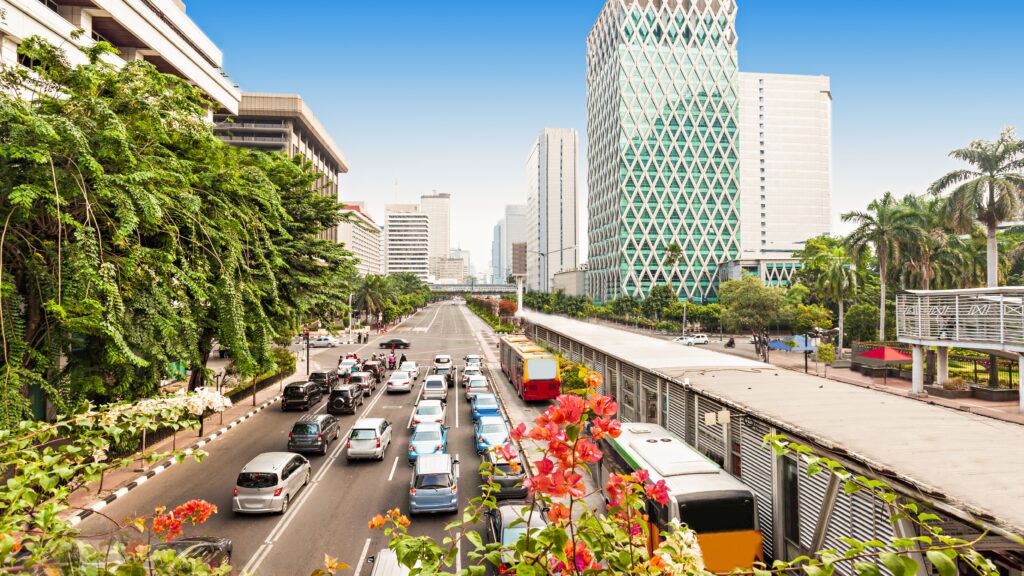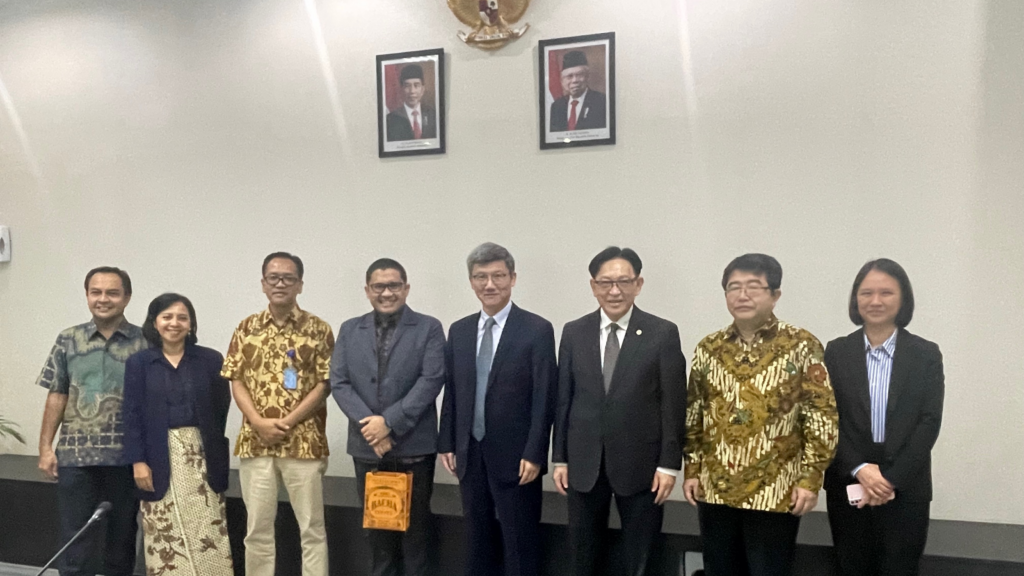
SINGAPORE, December 26, 2023 – Indonesia’s economic growth continued to perform robustly, led by resilient domestic consumption and strengthening investment. The authorities are encouraged to maintain policy synergy to ensure macroeconomic and financial stability, and sustained recovery momentum amid ongoing global headwinds. This is the preliminary assessment of the ASEAN+3 Macroeconomic Research Office (AMRO) after its Annual Consultation Visit to Indonesia from November 20 to December 1, 2023.
The AMRO team was led by Lead Economist, Sumio Ishikawa. AMRO Director, Kouqing Li, and Chief Economist, Hoe Ee Khor participated in the policy meetings. The discussions focused on the risks and challenges facing the economy of Indonesia, and policy options to maintain stability and sustain recovery momentum.
Economic developments and outlook
“The Indonesian economy is projected to grow by 5.0 percent in 2023 and strengthen to 5.2 percent in 2024,” said Ishikawa. “Robust domestic demand backed by solid consumer confidence and a boost from election-related spending, ongoing development of national strategic projects, including the new capital city, and a gradual recovery in external demand, are expected to support growth. Strong policy synergy among the authorities should be maintained to safeguard stability and support economic activity.”
Inflation is likely to remain manageable within the target of 3.0±1% in 2023 and 2.5±1% in 2024 due to Bank Indonesia (BI)’s consistent policy mix response, close policy synergy between BI and the government to control inflation by ensuring sufficient supply and distribution of necessary goods1, and continued energy subsidies. Sizeable trade surpluses, tourism rebound and sustained foreign direct investment inflows have supported the external position amid the recent bouts of capital flow volatility.
Policy responses
Bank Indonesia has been continuously strengthening its policy mix by increasing the policy rate, managing exchange rate volatility, and enhancing financial deepening, to anchor inflationary expectations and support the rupiah stability. As the banking sector remains sound, an accommodative macroprudential policy stance has been maintained by strengthening the Macroprudential Liquidity Incentives Policy (KLM) and lowering the Macroprudential Liquidity Buffer (MPLB) requirement, to revive lending to businesses. Efforts to enhance the efficiency of payment systems and promote local currency transactions have been stepped up.
Better-than-budgeted revenue collection has allowed the government to increase spending while keeping the fiscal deficit below the fiscal rule ceiling of 3 percent of GDP in 2023. The early adoption of a comprehensive tax reform package in the Harmonized Tax Law in 2021 contributed to a faster-than-expected fiscal consolidation in the past two years. The government is committed to maintaining fiscal prudence in 2024.
Risks and vulnerabilities
With domestic demand underpinning solid economic growth, Indonesia’s short-term outlook, like other emerging market economies, could be weakened by a sharper than expected slowdown in China.
The risk of global food and energy price spikes has heightened due to the El Niño phenomenon, OPEC+ announcement of oil production cut, and the recent Middle East conflict. Such spikes in commodity prices might have contagion effects on imported inflation.
Risk aversion against emerging market assets, including Indonesia, have persisted amid concerns about a tight-for-longer US monetary policy.
Indonesia faces structural challenges in its efforts to enhance economic resiliency and ensure a smooth transition to a green economy.
Policy recommendations
AMRO supports the current policy synergy among the government agencies. In a downside scenario with a slower-than-expected growth in major trading partners, the authorities are encouraged to closely monitor risks to macroeconomic and financial stability, while being ready to provide any needed support to shore up economic recovery.
AMRO welcomes the authorities’ efforts to deepen the domestic financial markets. The introduction of new monetary policy instruments carrying market competitive interest rates and being tradable in the secondary market is expected to contribute to a deeper money market and attract foreign portfolio investment inflows. Efforts to promote local currency transactions will facilitate trade and investment with not only ASEAN region, but also Japan and China, and reduce excessive reliance on USD in trade financing.
Authorities are encouraged to continue to build up the fiscal space with revenue enhancing measures in order to meet higher spending needs while upholding fiscal disciplines. The ongoing integration of taxpayers’ identification numbers into the national identification system and the establishment of a core tax system are expected to enhance taxpayers’ experience, and improve tax administration efficiency and policy targeting.
Efforts to rationalize budget spending and re-prioritize growth-support expenses should be expedited. The current energy subsidies should be replaced with direct cash transfers to vulnerable groups, which will enable the government to release fiscal resources for spending on education and healthcare, infrastructure, and climate change mitigation. Policy efforts to broaden the investor base are crucial to deepen the government bond market and enhance access to financing while lowering government borrowing costs.
Economic and trade diversification policies should be supported by continued efforts to improve the investment climate and enhance the ease of doing business. A streamlined project implementation process will help channel more private funds into infrastructure development. The authorities should continue to address the financial stress of infrastructure/construction SOEs to support their contribution to the infrastructure development agenda and mitigate potential impacts on banks’ asset quality. A roadmap to adopt the carbon tax with a cap-and-tax emission trading scheme should be coordinated with energy subsidy reforms. As the authorities are now working on a sustainable financing taxonomy, it is time to include guidelines with measurable parameters on transition activities which are aligned with decarbonization goals to narrow the financing gap for climate change.
AMRO would like to express its appreciation to the authorities and other counterparts for their cooperation, insightful discussions, as well as hospitality.
1Policy synergy has been strengthened through the Central and Regional Inflation Control Teams (TPIP and TPID), as well as the National Movement for Food Inflation Control (GNPIP) in various regions.
About AMRO
The ASEAN+3 Macroeconomic Research Office (AMRO) is an international organization established to contribute toward securing macroeconomic and financial resilience and stability of the ASEAN+3 region, comprising 10 members of the Association of Southeast Asian Nations (ASEAN) and China; Hong Kong, China; Japan; and Korea. AMRO’s mandate is to conduct macroeconomic surveillance, support regional financial arrangements, and provide technical assistance to the members. In addition, AMRO also serves as a regional knowledge hub and provides support to ASEAN+3 financial cooperation.

AMRO Director, Kouqing Li, and Chief Economist, Hoe Ee Khor met with Ministry of Finance Fiscal Policy Agency Chairman Febrio Nathan Kacaribu (fourth from left).
